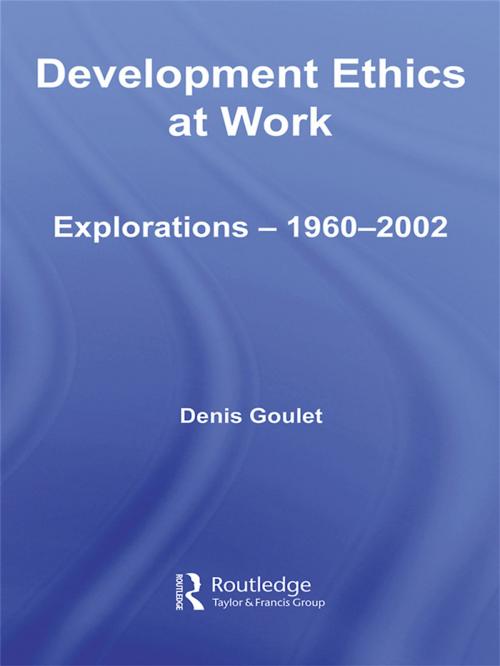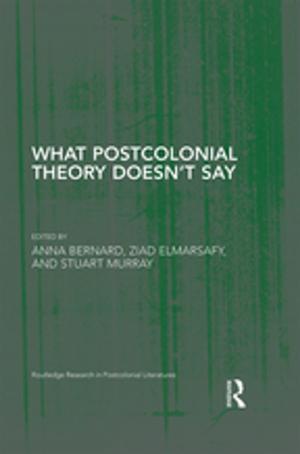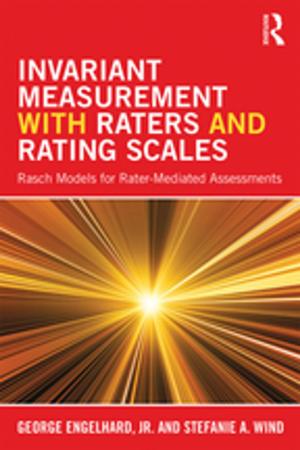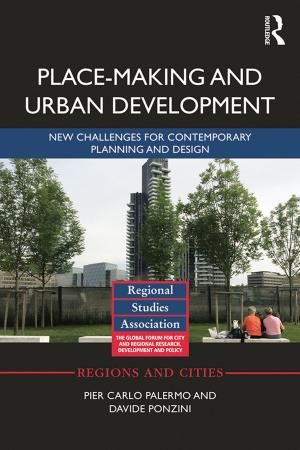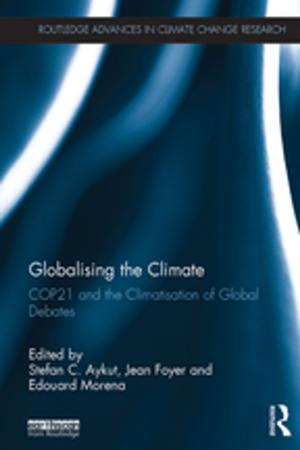| Author: | Denis Goulet | ISBN: | 9781135987787 |
| Publisher: | Taylor and Francis | Publication: | September 27, 2006 |
| Imprint: | Routledge | Language: | English |
| Author: | Denis Goulet |
| ISBN: | 9781135987787 |
| Publisher: | Taylor and Francis |
| Publication: | September 27, 2006 |
| Imprint: | Routledge |
| Language: | English |
In recent years, global institutions such as the World Bank have become increasingly conscious of the role that ethical reflection may play in leading towards more successful knowledge and policy for development.
This key book, written by Denis Goulet (founder of the field of development ethics), gathers together his main contributions in three distinct parts, covering:
- the early journeys of the author's thinking
- an exposition of the main themes he has explored
- the transition from early alternative development to alternative globalizations.
Goulet examines the evolution of development ethics, illustrates how a development ethicist can function in varied development arenas, explores the ethical dimensions of competing change strategies, and investigates the language of interdependence which prevails in development discourse.
The interdisciplinary work traces not only Goulet’s own thinking but also wider theoretical debates, seeking to integrate the findings of analytical, policy, and normative ‘sciences’, as they bear on the development process at the practical level. This makes it an essential read for postgraduates and professionals in the field of economics.
In recent years, global institutions such as the World Bank have become increasingly conscious of the role that ethical reflection may play in leading towards more successful knowledge and policy for development.
This key book, written by Denis Goulet (founder of the field of development ethics), gathers together his main contributions in three distinct parts, covering:
- the early journeys of the author's thinking
- an exposition of the main themes he has explored
- the transition from early alternative development to alternative globalizations.
Goulet examines the evolution of development ethics, illustrates how a development ethicist can function in varied development arenas, explores the ethical dimensions of competing change strategies, and investigates the language of interdependence which prevails in development discourse.
The interdisciplinary work traces not only Goulet’s own thinking but also wider theoretical debates, seeking to integrate the findings of analytical, policy, and normative ‘sciences’, as they bear on the development process at the practical level. This makes it an essential read for postgraduates and professionals in the field of economics.
